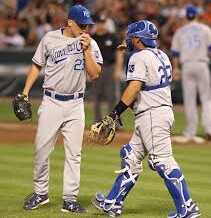
One powerful skill that exceptional business leaders and top revenue producers continue to hone is the ability to play catch.
Harken back to the classic movie Bull Durham. You may remember the rocket-armed pitcher “Nuke” LaLoosh, played by Tim Robbins. He consistently threw screaming fastballs in an attempt to strike out hitters. His stubborn approach prevented him from considering new options or strategically thinking about how to manage each batter he faced. He remained stuck in the minor leagues wondering why he could not elevate his game.
Crash Davis, played by Kevin Costner, is a career minor league catcher playing on “Nuke’s” team. Crash was a student of the game and understood every nuance of the ball field. His baseball wisdom ran deep. At one point, Crash jogs out to the mound and advises Nuke that his next pitch should be a curveball. Nuke refuses stating it is his fastball that will retire the batter. The two go back and forth arguing their respective points of view.
As Crash returns to his position behind the plate, he informs the batter a fastball is on its way. The batter proceeds to belt the ball over the fence for a homerun. Crash revisits the mound and as he approaches, Nuke says “geez, it’s like he new exactly what pitch was coming.” Crash coyly replies, “He did.” Crash, in a very direct manner was trying to let Nuke know who was really in control…the catcher.
Too often sales executives and business leaders believe that by “pitching” their ideas and points of view like a steady stream of fastballs, they will successfully influence and persuade others. The opposite is true.
It is by “playing catch” with those we are collaborating with that the most desired outcomes can be achieved. Being able to actively listen to others, paraphrase their points of view, and then share how we might help the other party is how extraordinary sales professionals and executives influence others.
Here are some questions you and your team might explore as you set the course with customers for the upcoming new-year.
- What are your customer’s key goals and priorities?
- What major challenges would your customers like to overcome in the fast changing marketplace? How might your company assist its customers in overcoming these challenges?
- How has the customer changed its strategy from the past? In what ways can your company best align to help the customer realize its core strategies?
- Ask for feedback. What suggestions might your customers offer so they perceive your efforts as true value adds vs. just another vendor or supplier?
The truly talented take the time to listen, learn and act. Only through a great game of catch can we fully appreciate where others are coming from. Make the time to develop four to six strong questions you would love to learn from your most important customers. Then go play some catch!
ShareJAN
